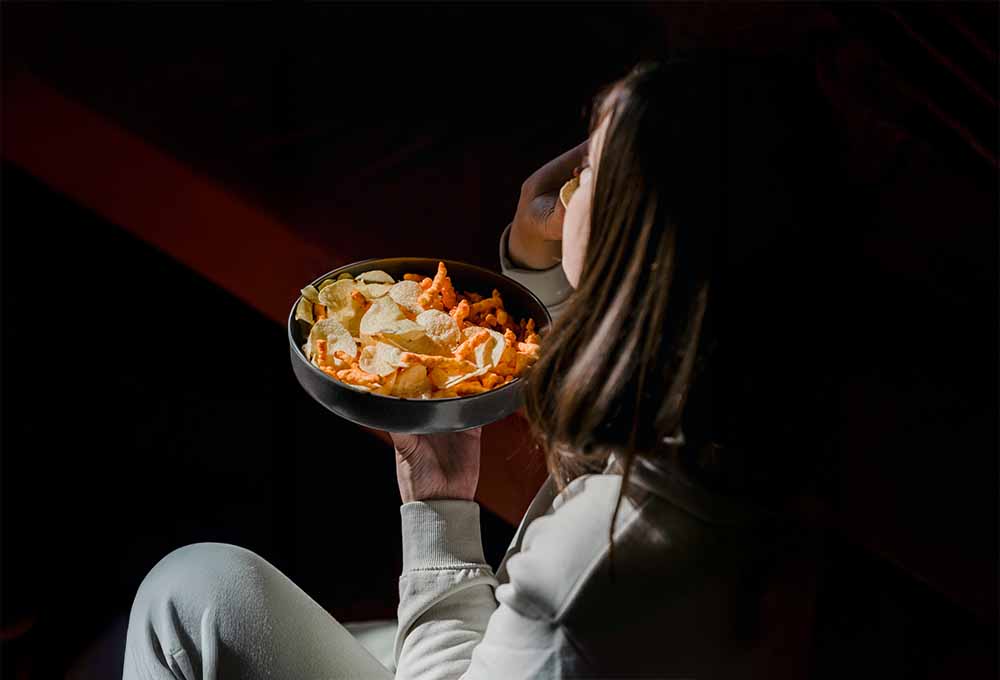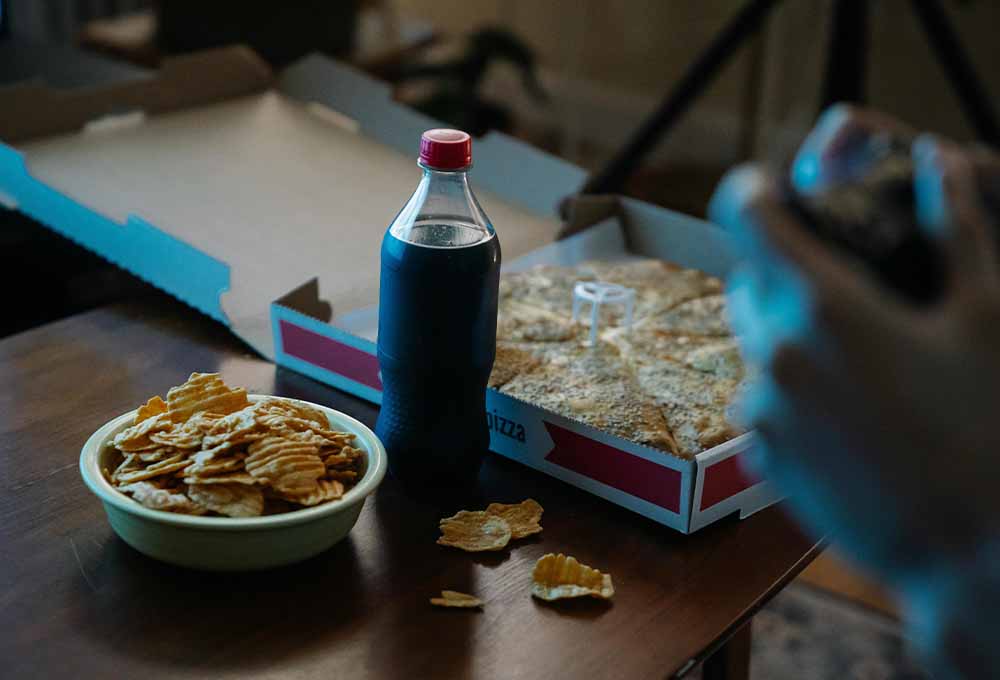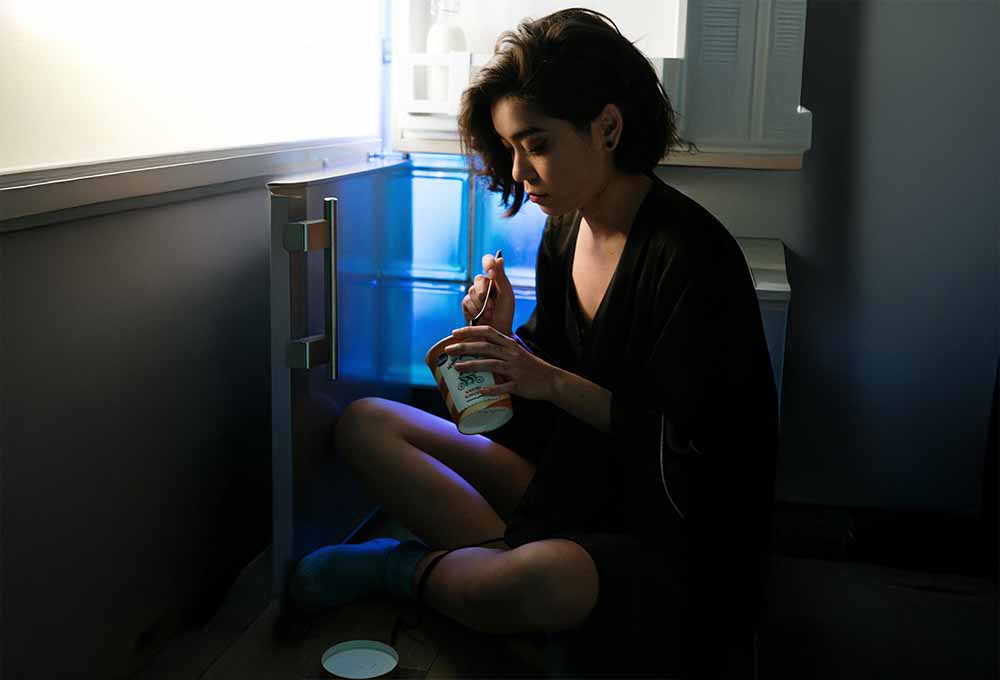Whether it’s a nibble of chocolate, a plate of leftovers, or a late-night cheese toastie, many of us are guilty of indulging in midnight snacking. While the occasional evening treat might seem innocuous, nutritionists are increasingly warning that what — and when — we eat before bed can significantly impact the quality of our sleep. Several studies have linked poor food choices late at night with disrupted sleep patterns, digestive discomfort, and even long-term health concerns.
So what exactly should you avoid before tucking in for the night? Here’s what the science — and the experts have to say.

1. Cheese and Cured Meats: A Tyramine Trap
Cheese boards and deli meats may be delicious, but they’re not ideal bedtime fare. These foods are rich in tyramine, an amino acid known to stimulate brain activity by triggering the release of norepinephrine, a hormone that can increase alertness.
According to a study published in Neuropsychopharmacology (2007), elevated levels of tyramine can cause the brain to remain more active during rest, potentially delaying the onset of REM (rapid eye movement) sleep — the deepest, most restorative stage of the sleep cycle.
Dr. Anjali Malhotra, a clinical nutritionist based in Delhi, explains:
“Tyramine-rich foods can overstimulate the nervous system, making it harder for your body to wind down. If you’re prone to insomnia or light sleeping, avoid foods like aged cheese, salami, and smoked meats within three hours of bedtime.”

2. Oily and Spicy Foods: A Recipe for Reflux
Indian diets are known for their rich, spicy flavours — but when enjoyed too close to bedtime, dishes laden with oil, chillies, or heavy tadkas can wreak havoc on your digestive system.
Dr. Rohit Kapoor, a gastroenterologist at Medanta Hospital, warns that oily and spicy meals are a common cause of acid reflux at night.
“Oils and spices delay gastric emptying, which means your stomach continues working hard while you’re lying down. This increases the likelihood of acid travelling back up the oesophagus, causing discomfort, heartburn, and disrupted sleep.”
A study in the American Journal of Gastroenterology (2003) found that consuming high-fat foods or spicy dishes within three hours of sleeping significantly increased the risk of nocturnal gastroesophageal reflux disease (GERD), a condition linked to fragmented sleep and daytime fatigue.

3. Dark Chocolate: The Caffeine Culprit in Disguise
It might be marketed as a heart-healthy antioxidant powerhouse, but dark chocolate carries a hidden stimulant: caffeine. Depending on the cocoa content, a single serving can contain anywhere from 20 to 40 milligrams of caffeine — enough to delay sleep onset for sensitive individuals.
A 2013 meta-analysis published in Sleep Medicine Reviews confirmed that even moderate doses of caffeine taken six hours before bed can reduce total sleep time by more than an hour. Furthermore, chocolate also contains theobromine, a lesser-known stimulant that increases heart rate and causes sleeplessness.
So while it might feel like a “clean” indulgence, that square of dark chocolate before bed may be keeping you more awake than you realise.
4. Citrus Fruits and Celery: The Sneaky Saboteurs
They might be part of your “clean eating” routine, but fruits like oranges, grapefruits, and pineapples all high in citric acid can also contribute to late-night acid reflux, particularly in individuals with sensitive digestive systems.
Celery, though low in calories and high in fibre, is a natural diuretic, meaning it encourages the body to flush out water. While that’s beneficial during the day, it can become problematic at night.
“Eating diuretic foods close to bedtime may increase the urge to urinate during the night, disrupting your sleep cycle,” says Dr. Malhotra.
In a study published in the Journal of Clinical Sleep Medicine (2010), night-time awakenings for urination (known as nocturia) were shown to reduce both sleep efficiency and overall duration, especially in older adults.
5. Pickles, Fermented Foods, and Papad: Salt and Sleep Don’t Mix
Tangy achar, fermented chutneys, and papadum might round off your dinner perfectly, but their high sodium content can lead to bloating, thirst, and water retention, all of which can interfere with restful sleep.
According to a 2018 study in Hypertension Research, high sodium intake is correlated with poorer sleep quality and increased frequency of waking up during the night. Salty foods also trigger thirst, prompting nighttime trips to the kitchen or bathroom.
What’s more, fermentation produces histamines — compounds that, like tyramine, can stimulate brain activity. This may make fermented foods a double whammy when consumed too close to bedtime.

So, What Should You Eat Before Bed?
If hunger strikes late at night, nutritionists recommend opting for light, sleep-supporting snacks that are easy on the stomach and rich in compounds that promote relaxation.
Some excellent bedtime snack choices include:
• Bananas: High in magnesium and potassium, which help relax muscles and nerves. They also contain tryptophan, a precursor to serotonin and melatonin (the sleep hormone).
• Almonds: A good source of magnesium, which has been linked to improved sleep quality in several studies, including one in the Journal of Research in Medical Sciences (2012).
• Oats: Contain both melatonin and complex carbohydrates that help more tryptophan get into the brain.
• Warm milk: Rich in calcium and tryptophan, long associated with sleep promotion.
Dr. Kapoor concludes:
“The goal isn’t to go to bed hungry, but to avoid triggering your digestive system or nervous system. Small, nutrient-rich snacks that support melatonin production and ease digestion are ideal.”
While occasional indulgence isn’t likely to do lasting harm, chronic late-night snacking on certain foods can compromise your sleep quality and your overall well-being. Awareness is key. By understanding how particular foods affect the body during rest, you can make more informed choices that set you up for deeper, more restorative sleep.
So the next time you’re tempted by that slice of leftover pizza or a few bites of chocolate, ask yourself: is it worth the toss and turn?